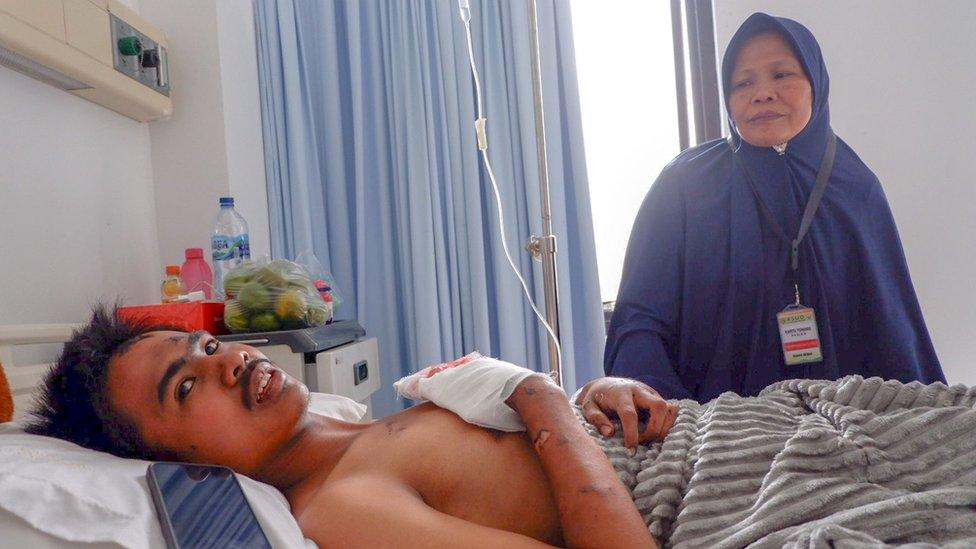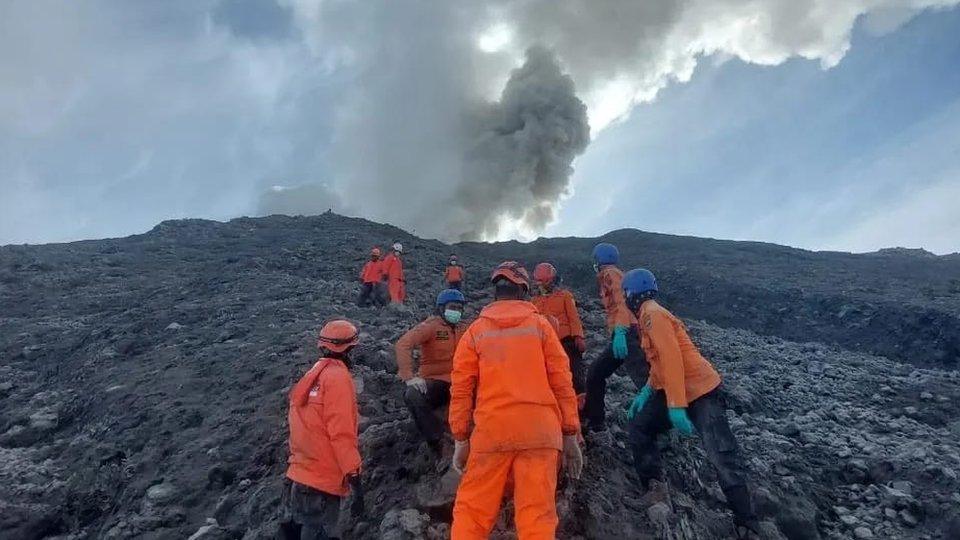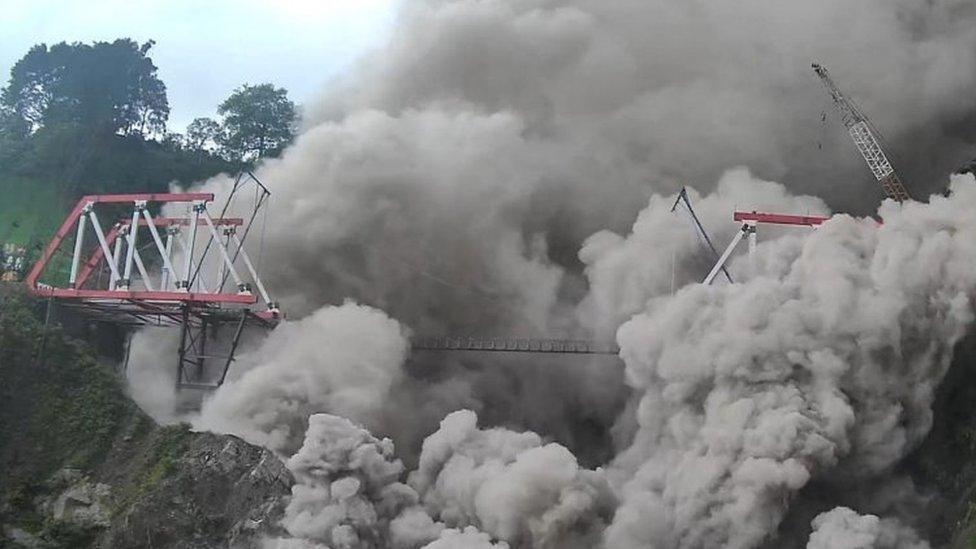Mount Marapi eruption: Survivor tells BBC of ordeal from hospital
- Published

Muhammad Fadli suffered burns and broken bones after Mount Marapi erupted
Muhammad Fadli was near the peak of Mount Marapi when the ground started to shake on Sunday afternoon.
When he heard the rumbling, he and three friends hid behind a pile of rocks for safety.
But another the size of a human fist came flying towards him.
"I dodged it with my empty hand, it broke my finger," he told BBC News Indonesia. Another rock then broke his leg.
The rumbling sound marked the beginning of Mount Marapi's eruption on Sunday.
The volcano spewed a 3km (9,800ft) ash cloud into the air, shrouding surrounding villages in ash.
Twenty-two people died and one hiker is still missing. Twelve other injured hikers are undergoing treatment in hospital.
Recalling the ordeal while being treated in Padang Panjang Hospital, West Sumatra on Tuesday, Muhammad said that soon after the volcano erupted thick black smoke covered the skies, clouding his eyes. He could not see his surroundings at all.
He had been climbing Mount Marapi - which means "Mountain of Fire" - with 17 other friends, starting their ascent on Saturday. But four of them - including Muhammad - got separated from the rest of the group when the volcano started erupting.
He said one of his friends who he was sheltering with almost lost consciousness after a rock landed on his head.
In treacherous conditions, the group slowly made their way down the mountain, trying to avoid the cloud of heat.
"We kept trying to move downhill by constantly looking for places to protect ourselves in the cliffs," he said.
They hoped to find a phone signal in order to alert a guard to their situation.
When they eventually found it, Muhammad immediately contacted the National Search and Rescue Agency, which instructed them to wait at a fork in the road where they would be picked up.
It would be eight hours before rescuers arrived.
But when they did so, Muhammad said he "finally felt relief".
In pain after suffering broken bones, wounds and burns, Muhammad was carried by rescuers on a stretcher.
"My three friends and I were able to survive even though we were injured," he said.
Watch: Ash-covered Indonesia volcano survivor sends video to mum asking for help
While popular among hikers, Mount Marapi is among the most active of Indonesia's 127 volcanoes.
But Mohammad said there were no signs the volcano was about to erupt when they started their climb at the weekend, adding that he had climbed the volcano several times before.
Another hiker, Zhafirah Zahrim Febrina, appealed to her mother for help in a video message from the volcano. She is now receiving treatment in hospital.
The 19-year-old student, whose nickname is Ife, appeared shocked, her face burnt and her hair matted with thick grey ash.
Her aunt, Rani Radelani, told the BBC Indonesian service that her niece went through great trauma.
On the call, Ife could not stop crying. She complained that her skin felt hot because of the volcanic ash.
But Rani tried to encourage her niece not to give up. "She said that she was scared, hot, cold and thirsty. I told her: 'You have to be strong, you are tough'," Rani said.
Mount Marapi has had Alert status since 2011, meaning that residents are advised not to approach within a radius of 3km (1.8 miles) from the top of the mountain, but hikers were given permission to climb it in July.
The West Sumatra Natural Resource Conservation Agency, BKSDA, has rules for climbing, such as forbidding anyone to approach the crater.
BBC Indonesian couldn't verify whether these rules had been enforced on the mountain before hikers climbed it at the weekend.
Marapi is located on Sumatra, the westernmost and third largest of Indonesia's 18,000 islands. It stands 2,891m (9,485ft) high.
The Indonesian archipelago sits on the so-called Pacific Ring of Fire, where the meeting of continental plates causes high volcanic and seismic activity.

Related topics
- Published5 December 2023

- Published4 December 2022
